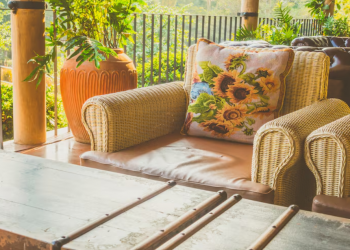The heart of every home deserves thoughtful attention and care. Your kitchen is more than a space for cooking—it’s where families come together over morning coffee, friends catch up over snacks, and countless phone calls unfold in the rhythm of preparing dinner. This multifunctional space plays a vital role in daily life, making it essential to choose the right design through thoughtful planning and informed decision-making.
When you’re ready to invest in a new kitchen, the sheer number of options and technical details can feel overwhelming. Without proper guidance, it’s easy to make choices that don’t align with your specific needs or lifestyle. That’s why asking the right questions upfront can make all the difference between a kitchen that truly works for you and one that falls short of expectations.
Understanding Your Unique Requirements
Before stepping into any showroom or meeting with designers, take the time to assess how your household actually uses the kitchen space thoroughly. Consider the cooking habits of different family members, the frequency of entertaining, and the daily routines that revolve around this central area of your home.
Consider peak usage times and whether multiple people will need to work in the space simultaneously. Some families prioritize extensive prep areas for elaborate meal preparation, while others need efficient layouts for quick weekday dinners. Parents may require easy sight lines to supervise their children, while avid bakers need specific storage solutions for their specialty equipment.
This self-reflection process helps establish a clear vision before you’re influenced by showroom displays or sales presentations. Whether you jot down thoughts in an organized list or brainstorm ideas, having a general direction prevents costly mistakes and ensures your investment aligns with real-world usage patterns.
The Value of Professional Consultation
Scheduling an early consultation with an experienced kitchen designer can provide invaluable insights that save both time and money. These professionals understand how to translate your lifestyle needs into practical design solutions, often suggesting configurations you might never have considered.
During these meetings, experienced designers can address concerns about workflow efficiency, storage optimization, and how to maximize the use of available space. They’re also well-versed in current building codes, appliance specifications, and installation requirements that affect both functionality and budget.
The best designers listen carefully to your priorities and offer honest feedback about what works well in similar situations. This professional perspective enables you to make informed decisions, rather than relying solely on visual appeal or trending styles.
Selecting Accessories That Enhance Function
The accessories and organizational systems you choose can significantly impact the daily usability of your kitchen. Frequent cooks benefit from specialized storage for knives, spices, and cooking tools that is within easy reach of their preparation areas. Those who love entertaining might prioritize serving pieces, wine storage, and areas for displaying attractive dishware.
Consider your electrical needs carefully, including the placement of outlets for small appliances you use regularly. Consider the lighting requirements for various tasks, ranging from detailed food preparation to ambient lighting for social gatherings. These seemingly minor details significantly influence how comfortable and efficient your kitchen feels in daily use.
Quality hardware and organizational systems represent worthwhile investments that enhance functionality for years to come. Well-designed drawer systems, cabinet organizers, and specialty storage solutions can transform even modest spaces into highly efficient work areas.
Choosing an Aesthetic That Endures
While kitchen trends come and go, selecting a style that reflects your personal taste and complements your home’s architecture creates lasting satisfaction. Whether you gravitate toward clean, minimalist lines or prefer the warmth of traditional designs, consistency in materials and finishes creates a cohesive, polished appearance.
Consider how your chosen style will age over time and whether key elements can be updated without major renovation. Neutral base colors, enhanced with personality through accessories and hardware, offer flexibility as tastes evolve. Quality materials, such as natural stone, solid wood, or high-grade laminates, maintain their appeal longer than trendy alternatives.
The goal is to create a space that feels authentically yours rather than copying magazine layouts that might not suit your lifestyle or home’s character.
Protecting Your Investment
Given that kitchen renovations represent significant financial commitments expected to last many years, working with established, reputable companies provides important peace of mind. Research potential contractors thoroughly, checking references, licensing, and insurance coverage before making commitments.
Understanding warranty coverage protects against future issues with both materials and artistry. Ask detailed questions about what’s included, how long coverage lasts, and what circumstances might void protection. Some companies offer extended warranties or service plans that provide additional security for major appliance purchases.
Clarify whether quoted prices include delivery, installation, and cleanup, or whether these services carry additional charges. Understanding the complete project scope prevents surprising expenses that can strain budgets.
Making Informed Comparisons
Rushing into kitchen purchases often leads to regret, especially given the long-term commitment involved. Taking time to visit multiple showrooms, compare materials and pricing, and gather several professional opinions leads to better decisions.
Don’t hesitate to ask for references from recent customers or to see examples of completed projects similar to what you’re considering. Reputable companies welcome these requests and understand that informed customers make the most satisfied clients.
Consider the total value proposition rather than focusing solely on initial costs. Higher-quality materials and superior craftsmanship often prove more economical over time, thanks to reduced maintenance needs and a longer service life.
Your new kitchen should enhance daily life while providing years of reliable service. By asking thoughtful questions and taking time for proper research, you’ll create a space that truly serves your family’s unique needs and preferences.









